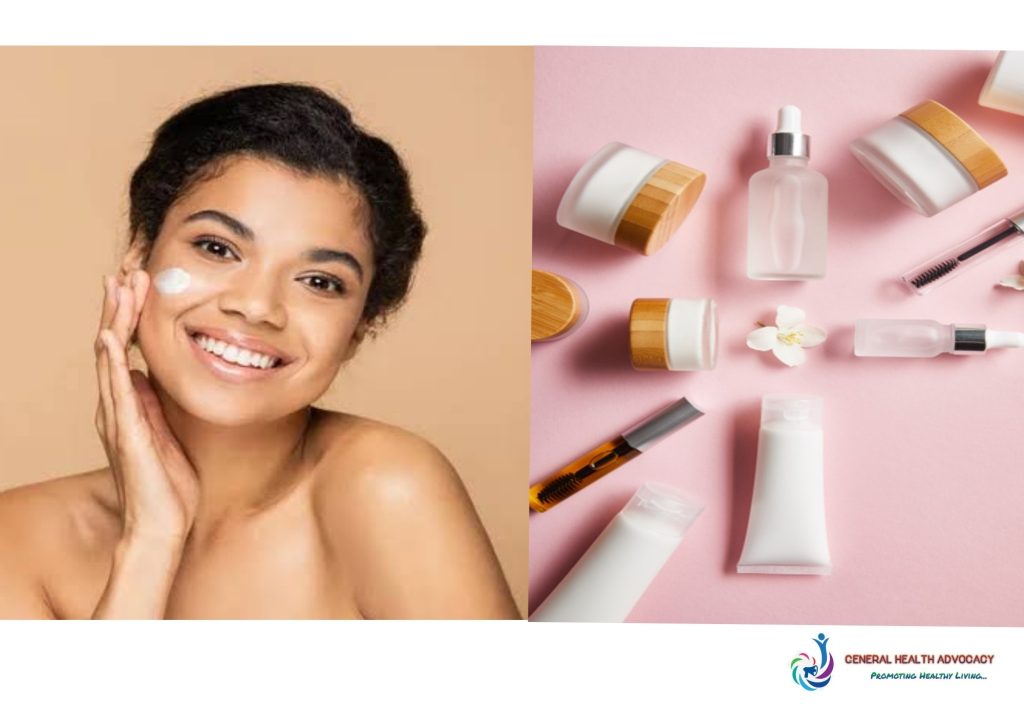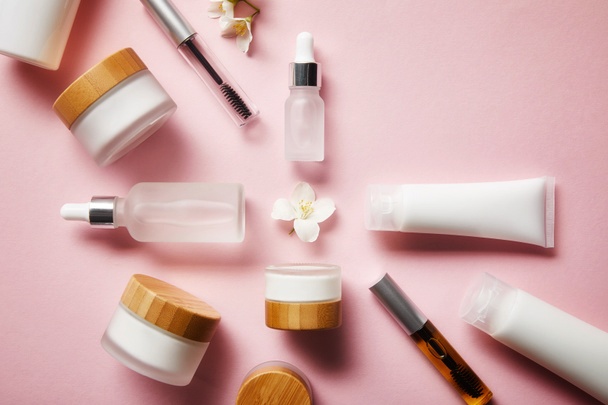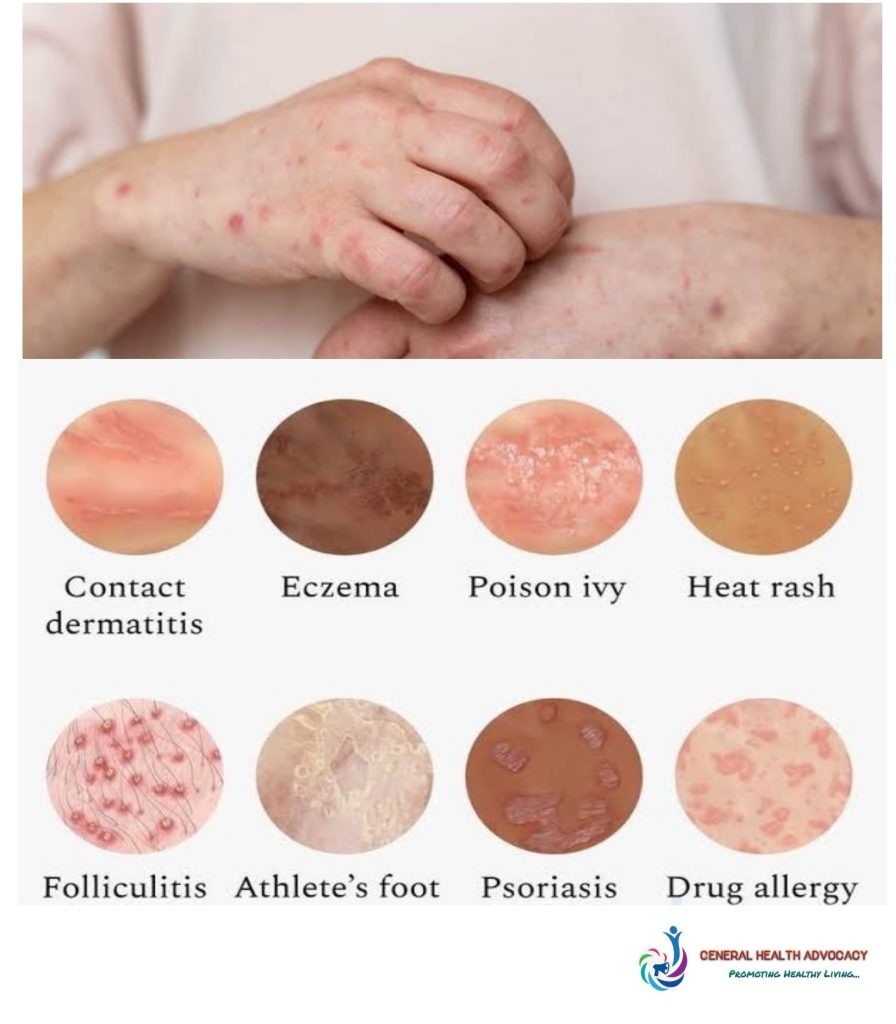10 Tips to Understand and Manage Skin Allergic Reactions of Body Care Products

In today’s world, skincare and personal hygiene play vital roles in our daily routines. However, what many may not realize is that some of the products we use can contain chemicals that trigger allergic reactions in sensitive individuals. Understanding these reactions, their causes, signs, symptoms, and how to manage and prevent them is crucial for maintaining healthy skin and overall well-being.
Skin care and body care products encompass a wide range of items designed to cleanse, moisturize, protect, and treat the skin and body.
Here are some common types and categories:
- Cleansers: These products remove dirt, oil, and impurities from the skin. They come in various forms such as cleansers, face washes, and body washes.
- Moisturizers: Moisturizers hydrate the skin, helping to maintain its natural moisture barrier. They can be lotions, creams, gels, or oils, formulated for different skin types and concerns.
- Sunscreen: Sunscreens protect the skin from harmful UV rays, reducing the risk of sunburn, premature aging, and skin cancer. They come in various SPF (sun protection factor) levels and formulations, including lotions, sprays, and sticks.
- Exfoliators: Exfoliators help remove dead skin cells, revealing smoother, brighter skin. They can be physical (scrubs) or chemical (acids like AHAs and BHAs) and are available for both the face and body.
- Serums: Serums are concentrated formulas containing active ingredients targeted to specific skin concerns, such as anti-aging, brightening, or acne-fighting. They typically have a lightweight texture and are applied before moisturizers.
- Masks: Masks provide intensive treatment for the skin, addressing various concerns like hydration, acne, or dullness. They come in different forms such as sheet masks, clay masks, and peel-off masks.
- Body lotions and creams: These products moisturize and nourish the skin on the body, helping to keep it soft and smooth. They may also contain additional ingredients to address specific concerns like dryness or firming.
- Body scrubs: Similar to facial exfoliators, body scrubs help slough off dead skin cells and improve skin texture. They often contain coarse particles like sugar or salt mixed with oils to gently exfoliate and moisturize.
- Body washes and shower gels: These products cleanse the skin while providing hydration and sometimes fragrance. They come in various formulations to suit different skin types and preferences.
- Specialty treatments: These include products like cellulite creams, stretch mark creams, and ingrown hair treatments, targeting specific concerns beyond basic cleansing and moisturizing.

Selecting the right skin care and body care products involves considering individual skin type, concerns, and preferences, as well as ingredient safety and effectiveness.
Read Also
Here are Frequent Asked Questions, that can help you to understand and manage your skin, to prevent allergic reactions
1. What are the common chemicals in body care products that can cause allergic reactions?
- Certain chemicals commonly found in body care products can trigger allergic reactions. These include fragrance, preservatives like parabens, sulfates, formaldehyde releasers, and certain dyes. These substances can irritate the skin, leading to various allergic reactions.
2. What are the signs and symptoms of an allergic reaction to body care products?
- Allergic reactions can manifest in various ways, including redness, itching, swelling, hives, blistering, dryness, and even severe reactions like anaphylaxis. The symptoms may differ depending on the individual’s sensitivity and the specific allergen involved.
3. How can I identify if I’m allergic to a particular body care product?
- Conducting a patch test is an effective way to determine if you’re allergic to a specific body care product. Apply a small amount of the product to a discreet area of your skin and observe for any adverse reactions over 24-48 hours. If irritation occurs, discontinue use and seek advice from a dermatologist.
4. What steps can I take to control allergic reactions to body care products?
- To control allergic reactions, avoid products containing known allergens and opt for fragrance-free, hypoallergenic formulations. Simplify your skincare routine and minimize the number of products you use. In case of a reaction, wash the affected area with mild soap and water and apply a soothing, hypoallergenic moisturizer.
5. Are there any natural alternatives to chemical-laden body care products?
- Yes, several natural and organic brands offer products formulated with gentle, plant-based ingredients that are less likely to cause allergic reactions. Look for products labeled as “natural,” “organic,” or “sensitive skin-friendly” to reduce the risk of irritation.
6. How can I prevent allergic reactions to body care products in the future?
- Prevention involves reading ingredient labels carefully and avoiding products containing known allergens or irritants. Consider consulting a dermatologist for allergy testing to identify specific triggers. Patch test new products before full application and introduce them gradually into your routine.
7. What should I do if I experience a severe allergic reaction to a body care product?
- In the case of a severe allergic reaction, such as difficulty breathing, swelling of the face or throat, rapid heartbeat, or dizziness, seek immediate medical attention. Individuals with a history of severe allergic reactions should carry an epinephrine auto-injector at all times.
8. Can I develop allergies to body care products over time?
- Yes, allergic contact dermatitis can develop over time with repeated exposure to certain ingredients in body care products. This highlights the importance of being vigilant about the products we use and being aware of any changes in our skin’s reactions.

Understanding allergic reactions to chemicals in body care products is essential for maintaining healthy skin and overall well-being. By being aware of potential allergens, recognizing symptoms, and taking preventive measures, individuals can minimize the risk of adverse reactions and enjoy a safe and effective skincare routine. Always prioritize your skin’s health and choose products that are compatible with your unique needs and sensitivities.